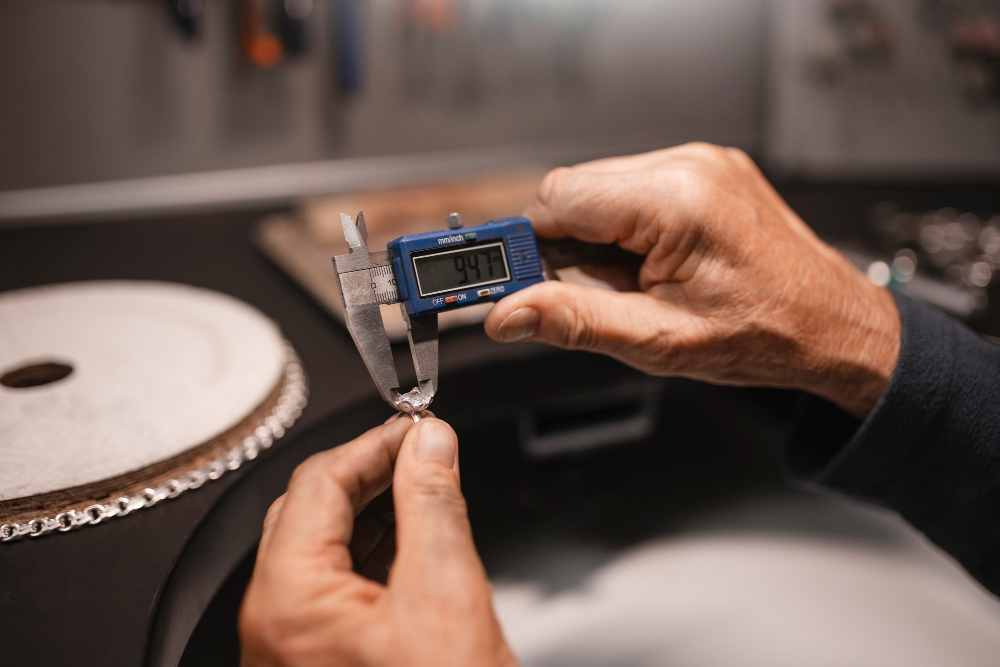How Quality Testing Ensures Reliability in Rubber and Plastic Components

How Quality Testing Ensures Reliability in Rubber and Plastic Components
In industries such as automotive, engineering, and manufacturing, the performance of rubber and plastic components directly impacts the safety, efficiency, and durability of the end product. From rubber hoses in vehicles to plastic molded connectors in machinery, even the smallest defect can lead to major failures.
That’s why quality testing is not just an added step—it is a critical part of the manufacturing process. At Tanwar Industries Pvt. Limited (TIPL), we place strong emphasis on in-house testing and inspection to guarantee that every component performs reliably under real-world conditions.
Why Quality Testing is Essential
Rubber and plastic components are often subjected to heat, pressure, chemicals, vibration, and environmental stress. Without rigorous testing, there is no assurance that they will withstand these conditions over time.
Quality testing ensures:
Safety – Prevents failures in critical systems like brakes, fuel, or hydraulics.
Durability – Confirms that components can perform consistently over years of use.
Compliance – Meets international quality standards and customer specifications.
Cost Efficiency – Reduces warranty claims, replacements, and system downtime.
Types of Quality Testing for Rubber and Plastic Components
At TIPL, we have a fully equipped in-house laboratory with modern testing facilities to ensure the reliability of every part we manufacture. Our key testing processes include:
1. Tensile Strength Testing
Measures how much pulling force a component can withstand before breaking.
Ensures that rubber seals, hoses, and plastic parts can endure mechanical stress.
2. Hardness Testing
Determines resistance to indentation or surface wear.
Critical for ensuring proper sealing, grip, and wear resistance.
3. Ash Content Testing
Checks the proportion of fillers and reinforcements in rubber compounds.
Ensures consistency and quality of raw materials used in production.
4. Dimensional Accuracy Testing
Verifies that components meet precise design specifications.
Prevents fitting issues during assembly in OEM applications.
5. Performance Simulation Tests
Replicates real-world operating conditions such as high temperature, vibration, and fluid exposure.
Guarantees reliability before components are integrated into vehicles or machinery.
Our Quality Assurance Approach at TIPL
At Tanwar Industries Pvt. Limited, quality is deeply rooted in our manufacturing culture. Our Quality Assurance (QA) team consists of highly skilled and technically qualified professionals who:
Follow strict quality norms and industry standards.
Inspect every component at multiple stages of production.
Use ultra-modern machinery and testing equipment for precision.
Ensure zero-defect manufacturing through process control and continuous improvement.
Benefits of Reliable Components for OEMs
For OEMs and Tier 1 customers, reliable rubber and plastic components mean:
✅ Improved Vehicle & Machine Safety – No risk of leaks, cracks, or failures.
✅ Enhanced Performance – Smooth functioning under extreme conditions.
✅ Reduced Maintenance Costs – Longer life cycles for parts.
✅ Customer Satisfaction – Higher trust in the final product.
✅ Global Market Readiness – Compliance with international quality certifications.
Conclusion
In today’s fast-paced industries, quality cannot be compromised. By investing in advanced testing processes and maintaining strict quality control, TIPL ensures that every rubber and plastic component is durable, safe, and reliable.
For over two decades, we have been delivering not just products but assurance, consistency, and trust to leading OEMs and Tier 1 customers.
✨ Tanwar Industries Pvt. Limited – Where Quality Testing Builds Reliability.
